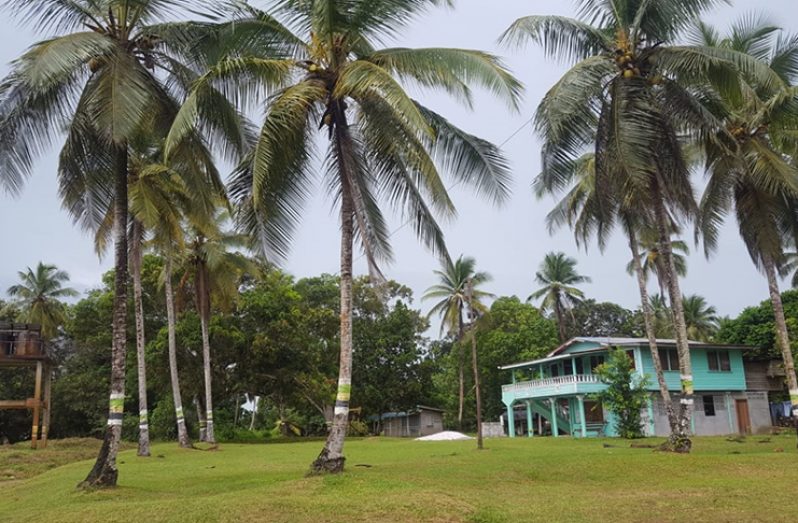By Indrawattie Natram
WAKING up to the symphony of chirping birds, buzzing bees and splashing waves from the nearby black water canal is a norm for those living in the indigenous community of St Densy/Tapakuma in Region Two. This community can be accessed by boat or by a rough trail from the Anna Regina public road. It takes approximately 45 minutes with a vehicle to enter this beautiful sun-kissed community.
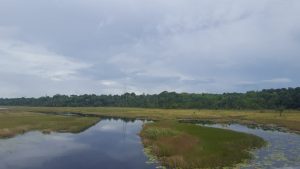
Travelling through the same road that leads to the Lake Mainstay resort, one would notice the giant trees that surround the area. About 20 minutes along the road, you will come across a sign that reads, “This way to Tapakuma”, which signals the beginning of an unforgettable trip.
The ride is not for the faint at heart and is much like the ride you would experience on the speedboat, if you are coming across the rough waters on the Essequibo River from the City of Georgetown. But if you are a nature lover then most of your time will be spent zooming in on the beautiful flora and fauna that line every inch of your journey. The magnificent scenery of forest, sand and black water will serenade your vision, encouraging you to explore more.
Welcoming you to the community is a ‘kissing bridge’ and, on many occasions, some of the village boys that are usually seen fishing for “Wabri”- a type of fish that lives in the savannah.
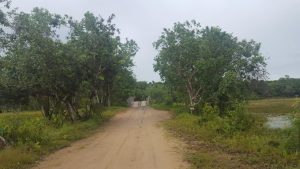
The community, which will soon be included under the Region’s Tri-lake experience tourism package, is known for its cassava biscuits, cassava bread, bird watching and animal spotting opportunities, as well as the Tapakuma Lake and the Paray Creek waterfall.
According to the toshao of the community, Aubry Fredericks, the community in two months’ time will be opening its guest house to accommodate more visitors. He said that the area has many tourist hotspots and as a toshao, it is his vision to develop the area making it more attractive for tourism.
Currently, the area has a lake, but beach access is a challenge. However, visitors can fish, enjoy bird watching and even plunge in the natural therapeutic black water, which is a popular component of the ‘Guyanese experience’, he said.
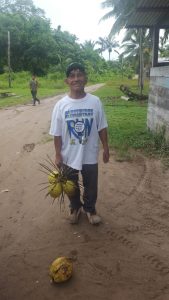
The toshao, is however hoping that the hilltop road leading to his community will be fixed to allow easier access to the area. He said that the road is creating challenges and, thereby, hindering tourism. He also informed the Pepperpot Magazine that the regional administration will be spending some $11 million to rehabilitate/upgrade the hilltop road which will open countless opportunities for 400 residents in the community.
According to 73-year-old Charles Fredericks, life in Tapakuma is a modest one. The man said that he grew up in the community and he appreciates living there. He is into farming but noted that the village economy is declining due to the lack of wood species.
Another resident, Dona Roberts said it is her desire to see the community develop into one that thrives on tourism since the lumber business is becoming unprofitable. Roberts said that the women in the rural community are eager to venture into the cottage industry, but finances are limited.
“Many of the women in this community are unemployed. I would like if we can do something, so we can earn,” Roberts said.
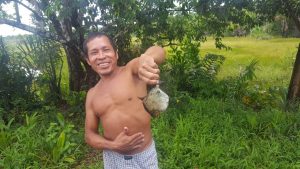
Another female Loren Roberts said that the cassava processing factory in the community is providing employment for the community but at the moment, finding a suitable market, as well as packaging, is a major challenge. She said that proper packaging is required for the cassava bread and biscuits in an effort for it to remain competitive on the market. Apart from that she enjoys living in the community explaining its peaceful and close to nature.
“We are at peace here, close to nature. We wake up, do our chores then in the evening we go catch fish and then take a dip in the black water canal. We enjoy it in here and we will be happy if others want to come experience that,” Roberts said.
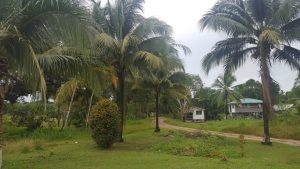
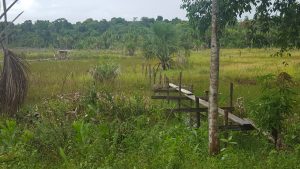
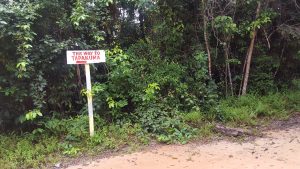




.jpg)





